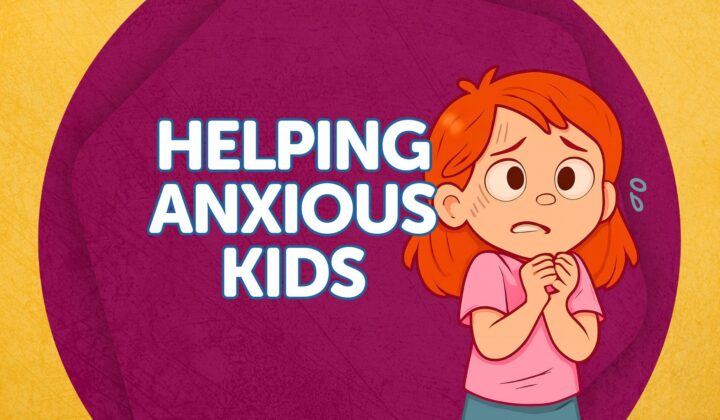Learn more about the journey that led to us equipping kids to carefully evaluate every idea they encounter.
Meet members of our team who have contributed to curriculum development.
Hear from real users of the Foundation Curriculum.
Learn what we believe about God, Jesus, Scripture, and more.
Part 4: Mommy, Why Does God Let Bad Things Happen?
Question 4: Wouldn't It Be Better If God Didn't Make Us Free So That We Could Never Sin?
This is a good and challenging question for any parent. We already talked about why bad things, sad things, scary things, and hurtful things happen – they happen because of sin. You might wonder, "Why didn't God just create us so that we could never sin? Then no bad things would ever happen!" That idea sounds great at first. But let's stop to think about it for a minute. If God made it impossible for you to sin, you would not be able to make choices. You couldn't choose what to wear, what to eat, who to be friends with, what to say, what to do, or anything else. That's because you would be born with all of those choices already made for you. You might think that this doesn't sound too bad. Maybe it would be worth it to trade in your ability to choose for a perfect life. But would it?
The Beauty of Choice
If you couldn't make choices, you would be like a robot. You would only be able to do what God wanted you to do. This might not sound too bad. But think about how you feel when your parents make you do something - go to bed early, eat your vegetables, or speak kindly to your siblings. These are all good things that your parents make you do. However, I bet you often feel angry when your parents make you do these things. Why? Why do you get upset when you have to do something? Many times you get mad because having the freedom to choose is very important to you.
Now, think about how you feel when your parents let you make choices. Doesn’t it make you feel happy when your parents let you choose what to pack for your lunch, what clothes to wear, or what movie to watch? You feel happy because having the freedom to choose is very important to you. Your parents know that when they let you choose, you might make the wrong choice. But they give you some freedom because they love you and they want you to learn how to make good choices.
There are times when your parents step in, and they require you to make the right choice. At other times, they stop you from making the wrong choice. The same is true with God. The Bible gives us many examples of times when God stepped in and stopped people who were doing horrible things. However, most times, just like your parents, God gives you the freedom to choose.
How Choices Relate to Love
There is one other important thing we need to discuss - love. If you were not free to choose, then you could not love others or be loved by them. If you were forced to love other people, it wouldn't really be love. Love is choosing to do what is best for others, rather than doing what is best for yourself. You can only show love to others when you are free to choose. And you can only be loved by others when they are free to choose. If God made you without the ability to choose, you wouldn't be able to love your parents, your siblings, your friends, or even God. If you traded in your ability to choose for a perfect world, that world really wouldn't be so perfect. It would be a world without love.
I hope by now you are seeing that God has given us some clear answers about why He allows bad things to happen. However, these answers probably don't make you feel good about all these bad things. That is okay. The bad things are bad, and we should never feel okay about them. But there is some good news about these bad things, and that is what we will explore in our next post.
For Further Study: Genesis 4:3-7, Deuteronomy 30:16-20, Joshua 24: 14-15, John 14:15
Note for Adults - Freewill is not a concept outlined in different passages of the Bible. Instead, it is a concept woven throughout the entirety of Scripture. Repeatedly, God presents individuals, families, and nations with choices. And they are then held responsible for the consequences of their actions. The above passages provide examples of people having the ability to choose.
For an adult response to this question, check out Why Does God Allow Evil by Clay Jones.

About Elizabeth Urbanowicz
Elizabeth Urbanowicz is a follower of Jesus who is passionate about equipping kids to understand the truth of the Christian worldview. Elizabeth holds a B.S. in Elementary Education from Gordon College, an M.S.Ed. in Education from Northern Illinois University, and an M.A. in Christian Apologetics from Biola University. Elizabeth spent the first decade of her professional career teaching elementary students at a Christian school. Elizabeth now works full time on developing comparative worldview and apologetics resources for children. Her goal is to prepare the next generation to be lifelong critical thinkers and, most importantly, lifelong disciples of Jesus.
Related Posts and insights

David: A Biblical Worldview Movie Review for Families
A biblical review of the David movie: positive elements, concerning deviations from Scripture, and discussion questions to help your kids think critically.

Helping Children Overcome Fears and Anxiety
Learn biblical strategies to help children overcome irrational fears and anxiety through independence, responsibility, and understanding God's character.

Navigating Santa at Christmas: A Biblical Parenting Conversation
Is telling kids Santa is real harmless fun or a parenting mistake? Discover the biblical case for honesty and how to keep Christmas focused on Jesus.
